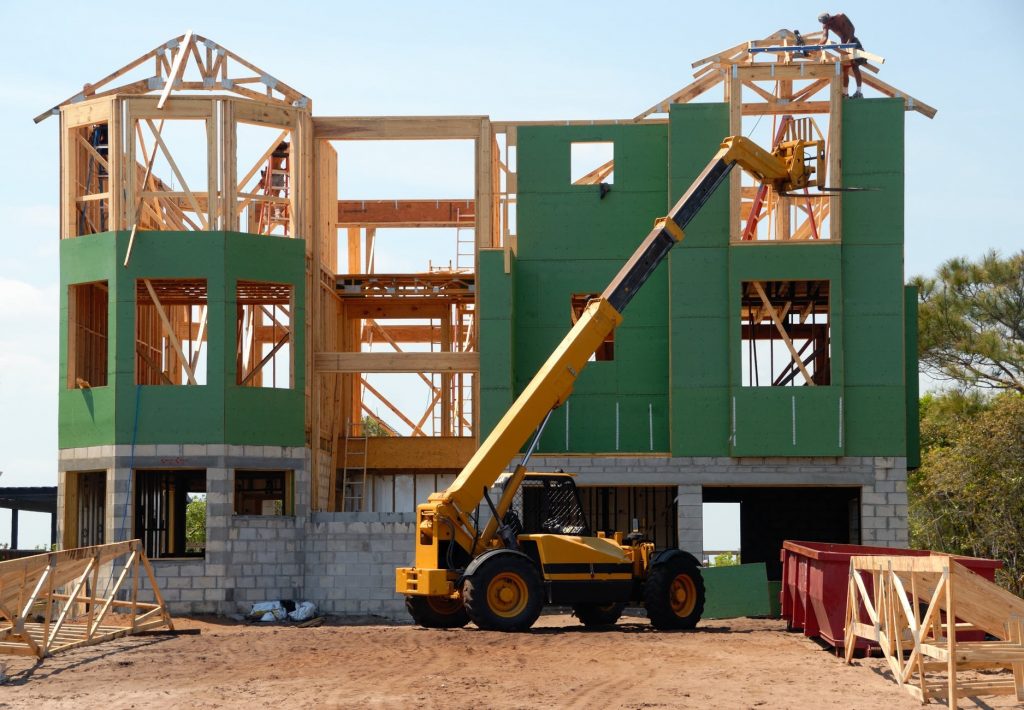7 Things to Consider When You’re Building A House
So, you’ve finally decided to build a customized home rather than buying an already-constructed house. Whether this decision took months or years of immense research, building a home is an excellent way to tailor your living spaces to your unique lifestyle needs. Despite its benefits, starting the construction process is equal parts overwhelming and exciting.
Some days, your foreman might not show up, delaying your completion date a day or two. Other days, you might have to roll up your sleeves and look into modifying your house plans in accordance with your budget restrictions.
Looking on the bright side, you’ll eventually clear every hurdle and check-off every checklist item associated with this strenuous construction phase. Once you’ve paid your team of contractors and house plan designers, you’ll officially own your dream home. As you embark on your home construction journey, you’ll want to keep these tips and tricks in your back pocket, so you can successfully build a home from start to finish.
Contents [hide]
Your current financial state
Before hiring a team of experts, you’ll want to ask yourself the following: How do you plan to finance the construction project? Unlike the house buying process that presents the total costs from the get-go, sorting out finances when building a home is a bit different.
If you’re looking to finance the project using loans, ensure that your bank approves it beforehand and cashes it before construction commences. Your contractor and architect should give you an accurate estimate of the money required to complete the project. Draft a schedule that allows you to plan your project with financial security and timeliness in mind. In the interest of savings, try not to deviate from your set budget.
Details of your dream house
While we recommend sticking to realistic expectations, you can still entertain the idea of specific design elements and custom features before building your customized home. Remember, this is a long-term investment that will serve as the background for major life milestones and everyday activities with your loved ones.
To stay within your budget, consolidate your dream-home fantasies and construction notes before meeting with the construction team. Once you’ve organized your ideas into one coherent physical representation, you can communicate with your contractor and architect to see if they are feasible within your budget parameters. Explain these custom features in detail and pair these verbal explanations with inspiration photos. Online resources like Pinterest can help you relay your ideas to your construction time effectively and help you avoid potentially costly or disastrous miscommunications.
Choosing a contractor
Your journey to owning a well-constructed home has everything to do with your choice of contractor. Finding the right contractor whose customer-service-oriented, flexible, and willing to adhere to your projected timeline might take some time, as you’ll need to vet the very best in the industry.
Investigate client/customer reviews, review their portfolio, and verify that they have the necessary training, licensing, and insurance to construct a home in your area. All these factors validate that your prospective contractor is qualified for the job—the more well-qualified your contractor, the better the experience.
Location is paramount
As mentioned previously, a custom home is an investment you shouldn’t take lightly. You’ll need to devote a generous amount of time to determine your dream home’s ideal location. Before buying land and kicking off construction, ask yourself if the area caters to your lifestyle needs. For example, avid skiers shouldn’t build their custom home hours away from the nearest ski slope, much like homeowners who crave natural scenery shouldn’t plop their custom home in a bustling city.
Additionally, consider factors such as security, neighborhood, social amenities, and proximity to your workplace before purchasing land. Accounting for these factors will save you time and resources if you no longer have to endure an hour-long commute. Not only will your custom home fulfill your wildest dreams, but it’ll make life easier and grant your loved ones a greater sense of security.
The layout of your house
The best house plans are timeless and remain appealing to buyers even after years of use. The best way to settle on a house plan is to learn towards the simplistic. Complicated structures limit the possibilities for future renovations. Your home’s layout should accommodate future expansion or remodeling plans. Whether you’re interested in executing renovations or trying to appeal to potential buyers that want to tweak the design following purchase, the transformability factor of your home may sway those on the fence.
Prepare for shortcomings
While we like to cheer on the spirit of optimism, not everything will go according to plan. Something will inevitably go amiss. Your supplier may run out of a few items you need, or your funding source will fall short. Prepare adequately for these hiccups by having several contingency plans in place. Having a team of experienced professionals by your side will help you immensely when brainstorming solutions for problems that pop up along the way.
Government approvals
Part of the construction process includes getting approval from the government and local authorities. Unknown to many potential homeowners, every state has a set of building rules and regulations that every construction project should adhere to. Failure to comply with the building regulations may result in the termination of the project. To avoid modifying your house plan or stop construction altogether, your contractor should guide you through this process as they are well-versed in local regulations and protocols.
Conclusion
Other factors such as your marital status, your future goals, and the house’s size will play a pivotal role in your house plan’s final draft. With this in mind, an aspiring custom homeowner should give themselves ample time to make rational decisions that won’t negatively affect their financial picture or quality of life. Undoubtedly, building a home can be stressful, but reaping the fruits of your labor and enjoying your custom home is well worth every minute of stress related to the construction process.




